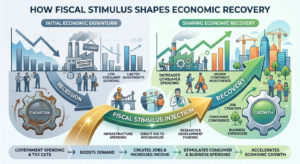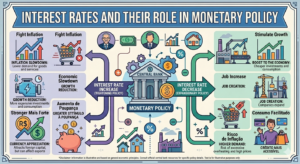The United Kingdom stands at the forefront of a global shift towards digital payments, witnessing a rapid and transformative evolution in how individuals and businesses transact. From contactless cards and mobile wallets to instant bank transfers and emerging cryptocurrency applications, the UK is embracing a future where physical cash plays an increasingly marginal role. This surge in digital payment adoption is driven by convenience, technological innovation, and changing consumer behavior, yet it also presents both opportunities and challenges for individuals, businesses, and the broader financial ecosystem.
One of the most significant drivers of digital payment adoption in the UK has been the ubiquity of contactless technology. The widespread issuance of contactless cards and the increasing acceptance of contactless payments by merchants across various sectors have made tap-and-go transactions a routine part of daily life. This ease and speed have significantly reduced reliance on cash for everyday purchases, particularly for smaller amounts. The COVID-19 pandemic further accelerated this trend, with many consumers and businesses preferring contactless options for hygiene reasons.
The rise of mobile wallets, such as Apple Pay, Google Pay, and Samsung Pay, represents another key facet of the digital payments revolution. These platforms allow users to securely store their payment card details on their smartphones and make transactions with a simple tap or scan. The convenience of carrying multiple payment methods on a single device, coupled with enhanced security features like biometric authentication, has fueled their growing popularity. Moreover, the integration of mobile wallets with loyalty programs and transport ticketing further enhances their utility and attractiveness to consumers.
Instant bank transfers facilitated by initiatives like Faster Payments have also contributed significantly to the digital payments landscape. These services enable near real-time transfers between bank accounts, offering a convenient and efficient alternative to traditional methods like cheques or card payments, particularly for larger transactions or payments between individuals. The increasing integration of instant bank transfers into e-commerce platforms and payment gateways further expands their reach and applicability.
The UK has also witnessed a growing interest in alternative digital payment methods, including Buy Now, Pay Later (BNPL) services and, to a lesser extent, cryptocurrencies. BNPL options have gained popularity, particularly among younger consumers, offering a flexible way to spread the cost of purchases. While the regulatory landscape for BNPL is still evolving, its increasing adoption highlights the demand for diverse digital payment solutions. Cryptocurrencies, while still facing volatility and regulatory uncertainty, are also being explored for their potential as a future payment method, although their mainstream adoption for everyday transactions remains limited.
The benefits of widespread digital payment adoption in the UK are numerous. For consumers, it offers greater convenience, speed, and security compared to cash. Digital transactions are often easier to track and manage, providing better insights into spending habits. Mobile wallets and contactless payments can also reduce the risk of carrying large amounts of physical currency.
For businesses, digital payments can lead to increased efficiency, reduced handling costs associated with cash, and access to valuable transaction data that can inform business decisions. Accepting digital payments can also broaden their customer base, catering to the growing preference for cashless transactions.
From a broader economic perspective, digital payments can enhance transparency, reduce the shadow economy, and potentially lower the costs associated with managing physical currency. They can also facilitate innovation in financial services and create new opportunities for fintech companies.
However, the transition to a predominantly digital payments landscape also presents several challenges that need careful consideration.
Financial Inclusion: Ensuring that individuals who are digitally excluded, such as the elderly, those with disabilities, or those on lower incomes without access to smartphones or bank accounts, are not left behind is crucial. Maintaining access to cash and providing accessible digital payment alternatives are essential for promoting financial inclusion.
Data Security and Privacy: The increasing reliance on digital payments necessitates robust security measures to protect sensitive financial data from cyber threats and fraud. Maintaining consumer trust requires transparent data handling practices and stringent security protocols across the digital payments ecosystem.
Interoperability and Standardization: Ensuring seamless interoperability between different digital payment systems and platforms is vital for a frictionless user experience. Greater standardization in payment protocols and data formats can facilitate wider adoption and reduce fragmentation.
Regulatory Framework: The rapid pace of innovation in digital payments requires a flexible and adaptive regulatory framework that balances consumer protection, market integrity, and the fostering of innovation. Authorities like the FCA and the Bank of England are actively engaging with the industry to develop appropriate regulations for emerging payment methods.
Merchant Fees and Costs: While digital payments offer benefits to businesses, the fees associated with card processing and other digital payment methods can be a concern, particularly for small businesses with tight margins. Finding a balance between the convenience for consumers and the costs for merchants is important.
The Future Landscape: The future of digital payments in the UK is likely to be characterized by further innovation and integration. We can expect to see greater adoption of biometric authentication for payments, the continued evolution of mobile wallets with added functionalities, and potentially the wider exploration of central bank digital currencies (CBDCs) like the “digital pound” being considered by the Bank of England. The seamless integration of payments into various online and offline experiences, from e-commerce to public transport, will likely continue to shape how we interact with money.
In conclusion, the UK is rapidly embracing a digital future for payments, driven by technological advancements and changing consumer preferences. While the benefits of convenience, efficiency, and innovation are significant, addressing the challenges related to financial inclusion, security, interoperability, and regulation is crucial for ensuring a smooth and equitable transition. The ongoing evolution of digital payments will not only transform how we transact but also have profound implications for the broader financial landscape and the very nature of money in the years to come.







